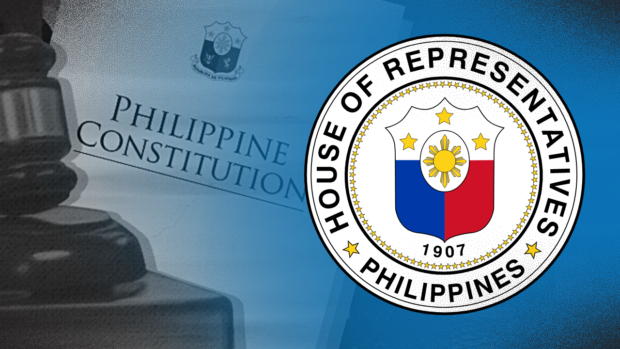House Committee of the Whole approves RBH 7
MANILA, Philippines — The House of Representatives convening as a Committee of the Whole approved on Wednesday Resolution of Both Houses (RBH) No. 7, which seeks to amend three economic provisions of the 1987 Constitution.
Following the interpellations by lawmakers, Mandaluyong City Rep. Neptali Gonzales II, the floor reader of the committee, moved to approve RBH No. 7.
His motion for approval was carried by House Majority Leader Manuel Jose “Mannix” Dalipe after nobody objected.
The committee report from the panel will be submitted before the plenary.
RBH No. 7 has been filed by Senior Deputy Speaker Aurelio Gonzales Jr., Deputy Speaker David Suarez, and Majority Leader Manuel Jose Dalipe.
RBH No. 7 is almost an exact reproduction of RBH No. 6, which was introduced by Senate President Juan Miguel Zubiri, Senators Loren Legarda and Juan Edgardo Angara before the upper chamber.
Article continues after this advertisementBoth resolutions are titled, “A Resolution of Both Houses of Congress proposing amendments to certain economic provisions of the 1987 Constitution of the Republic of the Philippines, particularly on Articles Xll, XlV and XVl.”
The RBH No. 7 suggests the insertion of the phrase, “unless otherwise provided by law,” which would empower Congress to lift or relax present economic restrictions in the nation’s basic law, and the addition of the qualifier “basic” in Article XlV.
“RBH No. 7 and RBH No. 6 also restate the provision of the Constitution that Congress may propose amendments upon a vote of three-fourths of all its members,” as explained by House Speaker Martin Romualdez’s office.
Prior to its approval, several resource persons, including, former senator Gregorio Honasan, former finance secretary Margarito Teves, and Foreign Affairs Undersecretary Jesus Domingo supported the proposed Constitutional amendment of the resolution.
Echoing other lawmakers’ claims, Honasan said lifting foreign ownership restrictions in the Constitution could contribute immensely to the country’s economic growth and will allow the country to adapt to “fast-changing global geo-political, economic and technological conditions and developments.”
Although RBH No. 7 could raise concerns about the national security implications of 100-percent foreign ownership of telecommunications companies, he said that this could be addressed by “the proposed insertion of the phrase, “unless otherwise provided by law,” in the Charter’s economic provisions.
Unlike countries like Singapore and Malaysia, Teves, on the other hand, pointed out that “the foreign equity limitations in the Constitution are binding constraints to investors.”
He also urged Filipinos not to be afraid of foreign investors, which could help generate more job opportunities in the country.
However, ACT Teachers Rep. France Castro, who voted no against the approval, pointed out that the problem does not solely depend on the Constitution.
“The reason why we are in this state is due to the policies we implement in the economy, in education, and in other fields,” the lawmaker said in Filipino.
“Education is also not for sale. The amendment being made to Article 14 of our Constitution is like depending our education on foreigners or aliens. Education is really what (increases) our awareness among our young people, so we should take care of it,” she added.
On the other hand, Kabataan Rep. Raoul Manuel claimed that the approval was based solely on one belief or a “dogma,” that there should be competition against other foreign countries.
“But this dogma rejects that there is an even playing field worldwide and in our country. The free market is not as free as we want it to be, and that is why the government must protect disadvantaged sectors in our economy,” he said.
“The support for our small businesses and education, research and development and technological innovation and other neglected aspects is not just an extra cost,” he added.
Gonzales earlier said that the lower chamber is set to begin its plenary debates on the proposed amendments on Monday and targets to approve RBH No. 7 on its second reading by March 14.
He added that they still plan to finally approve the amendment proposals before Congress goes on its Holy Week break or on March 23.
